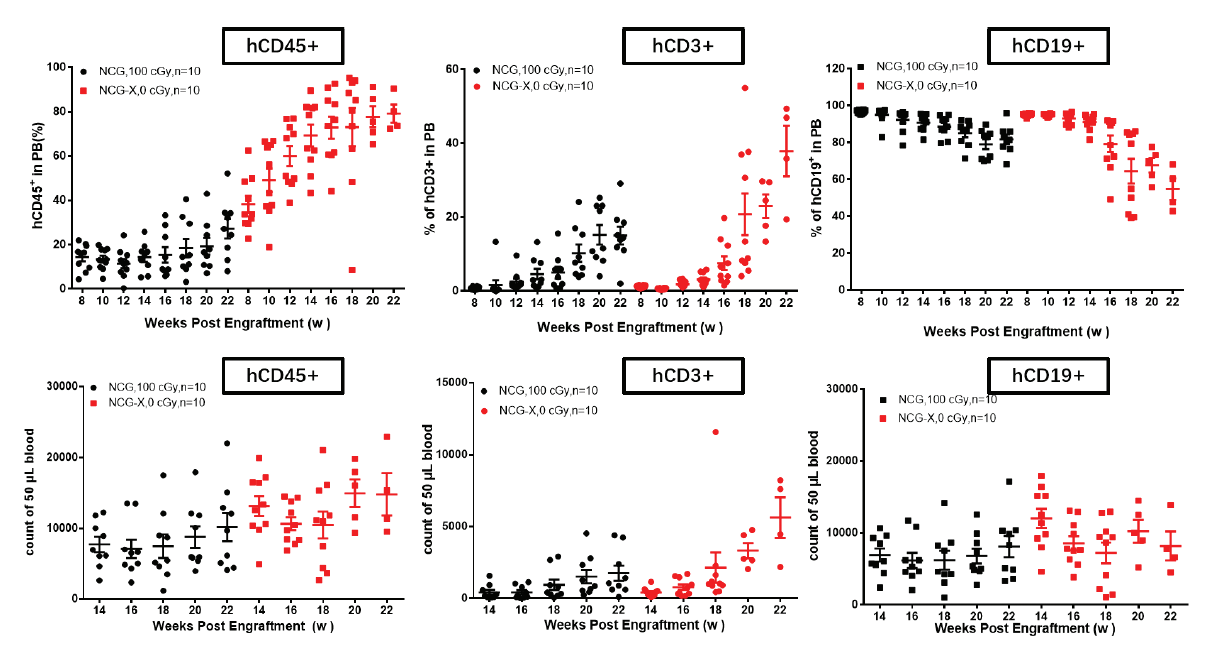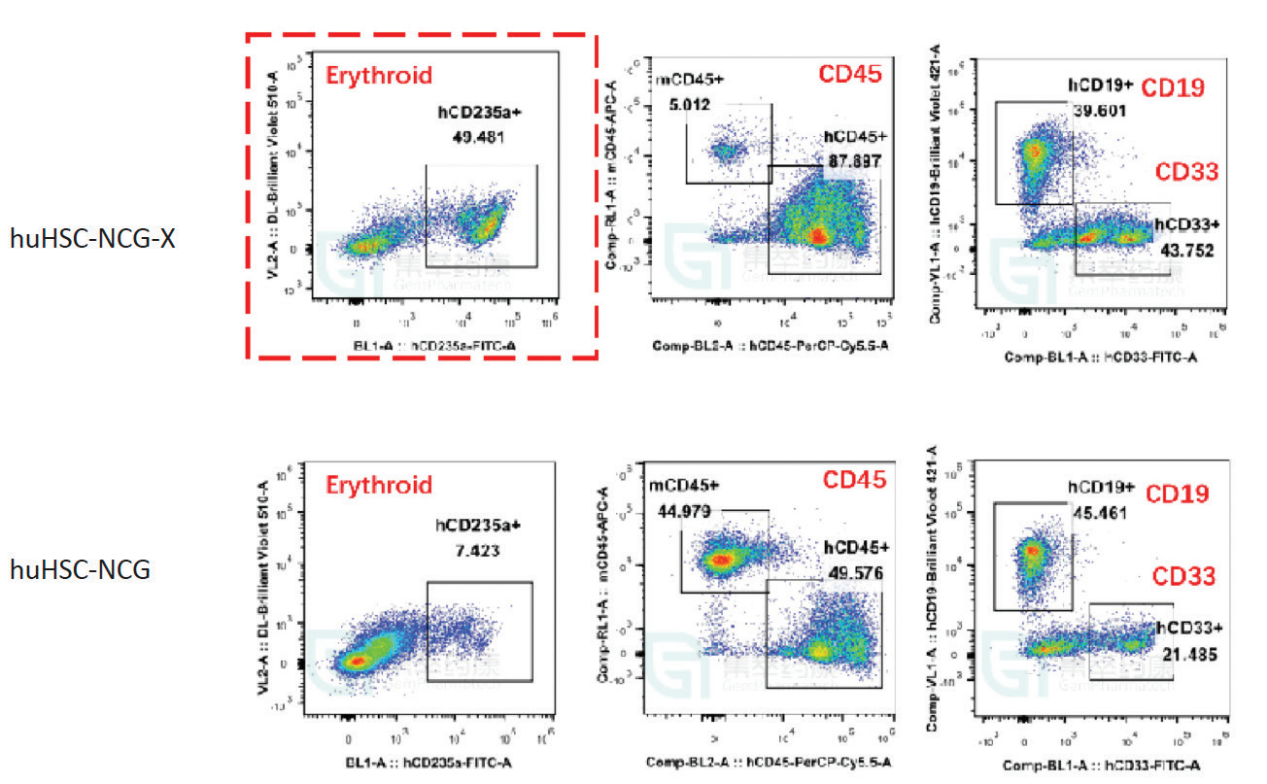Proto-oncogene c-KIT, also known as CD117 (cluster of differentiation 117 or mast/ stem cell growth factor receptor (SCFR)), is a receptor tyrosine kinase protein that is encoded by the KIT gene. Generally, hematopoietic stem/progenitor cells express c-kit, while acute lymphoblastic leukemia cells rarely express it. The c-KIT protein plays a crucial function in the signaling pathway for bone marrow-to-plasma migration of hematopoietic progenitor cells.
C-KIT mutations have been linked to multiple types of cancer. The W41 is a point mutation at position 831 Val to Met in the c-kit protein, which may suppress the function of hematopoietic stem cells, resulting in spontaneous anemia in mice.
GemPharmatech developed the NCG-X strain, which does not require irradiation during HSC reconstitution, and huHSC-NCG-X can reconstitute red lineage cells in mouse bone marrow that could be utilized to research thalassemia.
Applications
Human immune system development
Research on thalassemia
Evaluation of anti-tumor drugs targeting red blood cells
Immune system reconstitution models that do not require irradiation or chemoablation
Supporting data
1. Human immune reconstitution levels of huHSC-NCG-X mice

Compared with irradiated NCG mice, huHSC-NCG-X mice were able to rebuild the human immune system efficiently without irradiation.
2. Reconstitution levels of red blood cells in huHSC-NCG-X mice in the bone marrow

The human HSC reconstruction assays in NCG-X mice demonstrated a considerable increase in the proportion of reconstructed erythrocytes in the bone marrow of NCG-X mice compared to irradiated NCG mice. This finding suggests that huHSC-NCG-X can be used as a good model to research diseases like thalassemia.

